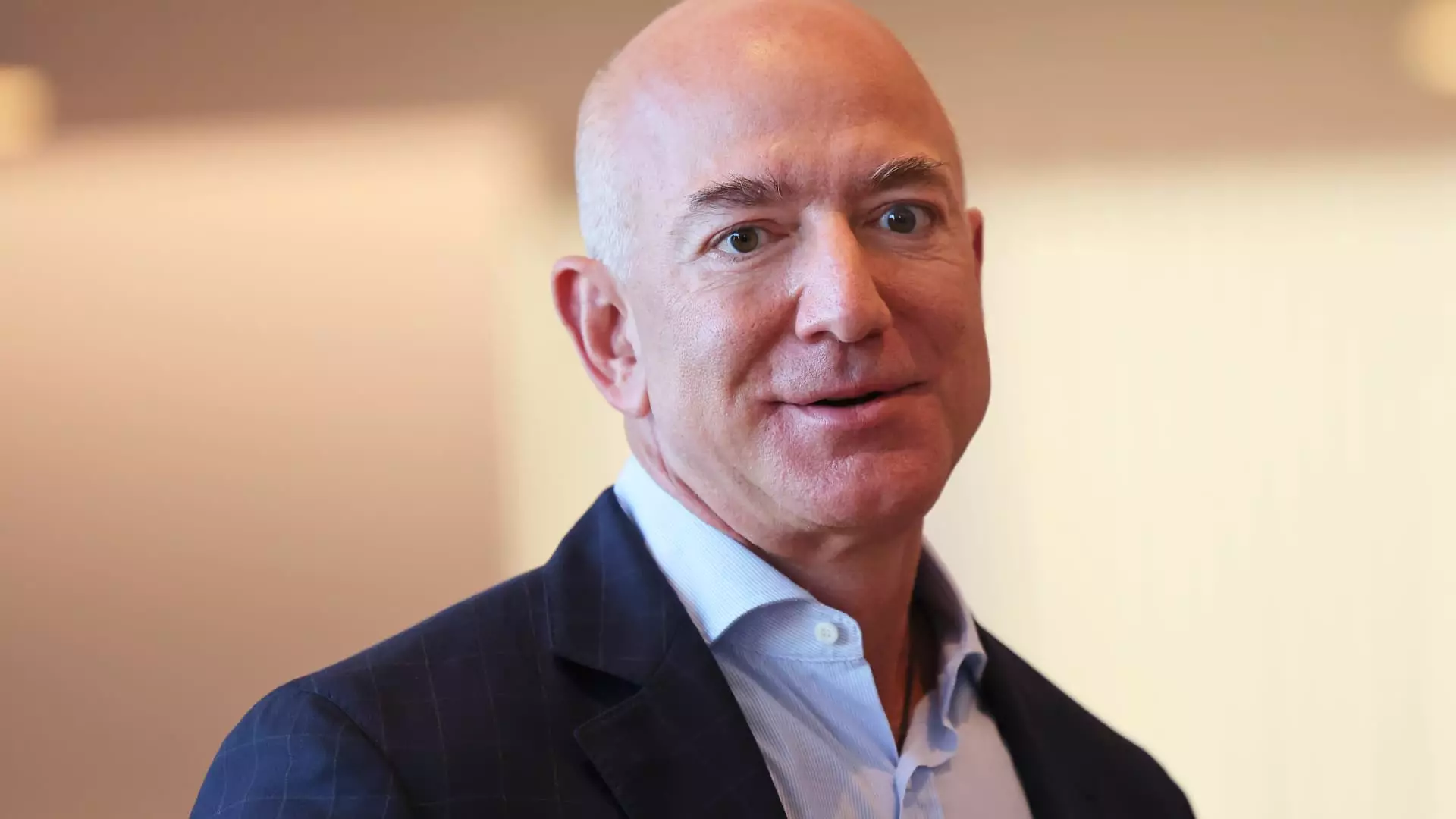In a bold move that has ignited debates within journalism circles, Jeff Bezos, the owner of The Washington Post, recently announced that the paper would no longer endorse candidates for presidential elections. This decision has significant ramifications, as endorsements have historically been a staple for newspapers, a practice that has fallen under scrutiny for biases and perceived partisanship. As the media landscape grows increasingly complex and polarized, Bezos’ statement reflects an earnest attempt to address the overarching issue of trust in media.
Bezos characterized the move as a “meaningful step in the right direction” towards restoring faith in journalism, a crucial element that he feels has been severely compromised. In his op-ed, he lamented the timing of the decision, suggesting that making this change earlier might have heightened its impact and reception. This remark hints at a sense of urgency and a need for reflection on the part of media outlets that often operate in reactionary modes to public sentiment.
The crux of Bezos’ argument pivots around trust—something he identified as a diminishing commodity in media. Through a recent Gallup poll, he highlighted that the press ranks as the least trusted institution among ten civic and political entities in the U.S. This was an attempt not only to frame the narrative around endorsements but also to invoke broader concerns regarding the credibility of news organizations today. Bezos astutely pointed out that the perception of bias can undermine the fabric of journalism, which is paralleled by the trustworthiness of electoral processes.
With a rich background in innovative thinking thanks to his tenure at Amazon, Bezos appears to aim for a transformative shift rather than a tactical adjustment. His perspective suggests a yearning for journalism to reclaim its role as an impartial adjudicator in the public domain—something that endorsements may have compromised over the years.
However, the implementation of this new policy was met with considerable backlash. The Washington Post’s editorial and circulation staff reacted strongly to the announcement, resulting in the resignation of several editorial board members. This turbulence raises questions about internal alignment within the paper and whether such radical changes can be executed without ruffling feathers among staff who may still hold traditional values in media practices. Furthermore, the loss of over 200,000 digital subscribers reveals that the ramifications of such changes extend beyond the editorial office and into the reader base, which is integral to any publication’s survival.
As Bezos claimed, the decision was not made lightly, and he attempted to distance himself from the perception that external forces, including his business dealings and relationships, contributed to this drastic shift. His comments emphasize a desire to keep media and personal business endeavors separate, adding a layer of complexity to the narrative surrounding the decision to end endorsements.
Bezos noted another pivotal point related to the dual existence of newspapers: they must not only be accurate, but they must also be perceived as credible. The implication that the media is failing in this second regard is concerning. His candor reflects an understanding that, despite the integrity of reporting, the belief in that integrity is in crisis. He advocates for a reevaluation of how journalism operates and interacts with the public, which echoes sentiments expressed by many media critics who view the industry through the lens of systemic reform.
Bezos’ op-ed serves as a catalyst for much-needed dialogue on the future of media endorsements and journalism as a whole. It confronts not only the immediate fallout from The Washington Post’s decision but also the broader, systemic issues affecting how news is reported and consumed. What remains to be seen is whether this innovative pivot will restore trust among readers or further complicate an already fractious relationship between media and the public. By redefining the role of endorsements, Bezos may be leading the charge towards a more principled approach, but the journey ahead will require patience, transparency, and a willingness to listen to the voices of those most affected—both within the organization and its readership.

Leave a Reply